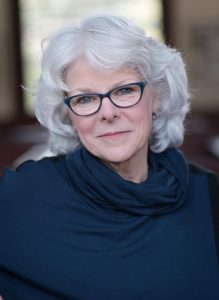 She’s Episcopalian — not Roman Catholic, not Pentacostal and not Mormon.
She’s Episcopalian — not Roman Catholic, not Pentacostal and not Mormon.
But even with the panoply of Christian denominations, the Rev. Dr. Barbara Brown Taylor said she wants to “do her best” to speak about grace from a Christian perspective in a way that will enable listeners to think about grace for themselves.
“I want people to ask, ‘Does God’s grace preempt free will?’ ” said Taylor, an author, Episcopal priest, professor and theologian. “ ‘Does it reward the crooked and ignore the righteous?’ There are a lot of interesting theological questions about divine grace, something which does not behave by human standards.”
At 2 p.m. today, August 6, in the Hall of Philosophy, Taylor will discuss “Alarming Grace: A Christian Perspective,” part of the Week Seven interfaith lecture series, “Grace: A Celebration of Extraordinary Gifts.”
Taylor has served as Chautauqua Institution’s chaplain of the week five times, and was awarded the Chautauqua President’s Medal in 2016. In 2014, TIME magazine added Taylor to its annual TIME 100 list of the most influential people in the world, and her book Learning to Walk in the Dark was featured on TIME’s front cover.
“I wrote Learning to Walk in the Dark for the same reason I write most books, and that is: I hear the same thing coming up with people I talk to, or in the emails I receive, or in the news,” Taylor said. “What I was hearing a lot about before I wrote that book, was people feeling lost; that they were in the dark — about faith, about the future of the world, about politics.”
Taylor said she “particularly picked up on” the crisis of faith she said she kept encountering.
“I thought about all the ways in which Christians are encouraged to think that God is all about light, and not about dark,” she said. “And that’s just patently false. I’ve written a book about all the ways that Scripture and tradition and experience teaches us that God is as active in the dark as in the light. God does some of God’s best work in the dark.”
According to Taylor, being “in the dark” can mean many different things.
“For some people, darkness is depression, for some people it’s literal blindness, for other people it’s poverty,” she said. “I learned really quickly that darkness is like a ball of Scotch tape — that it collects different things for different people.”
Taylor said she hopes her audience today “will come out (of the lecture) with better questions than they had before they came in.”




